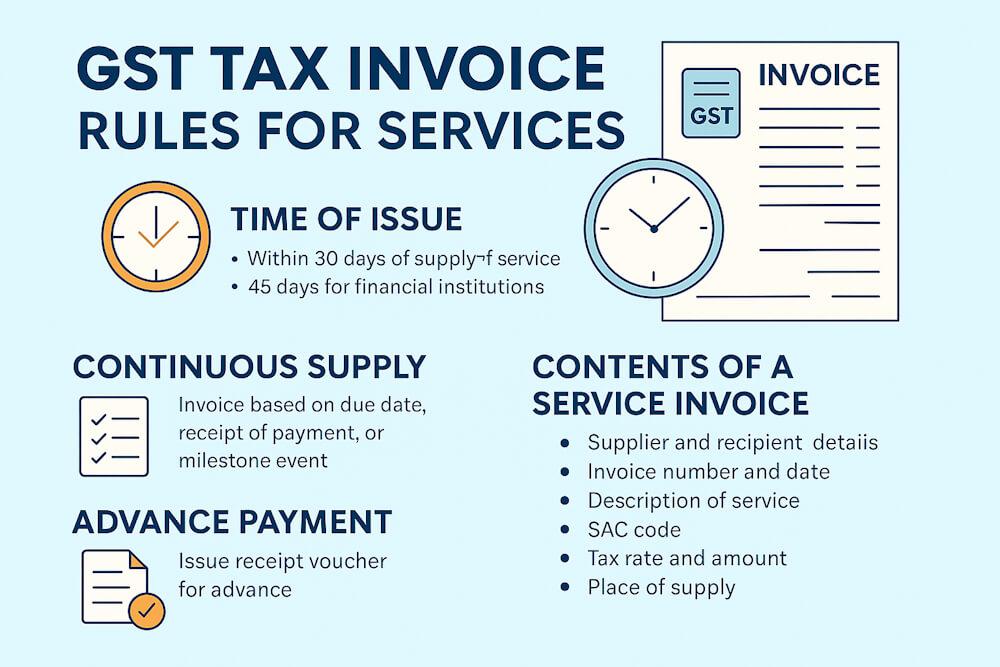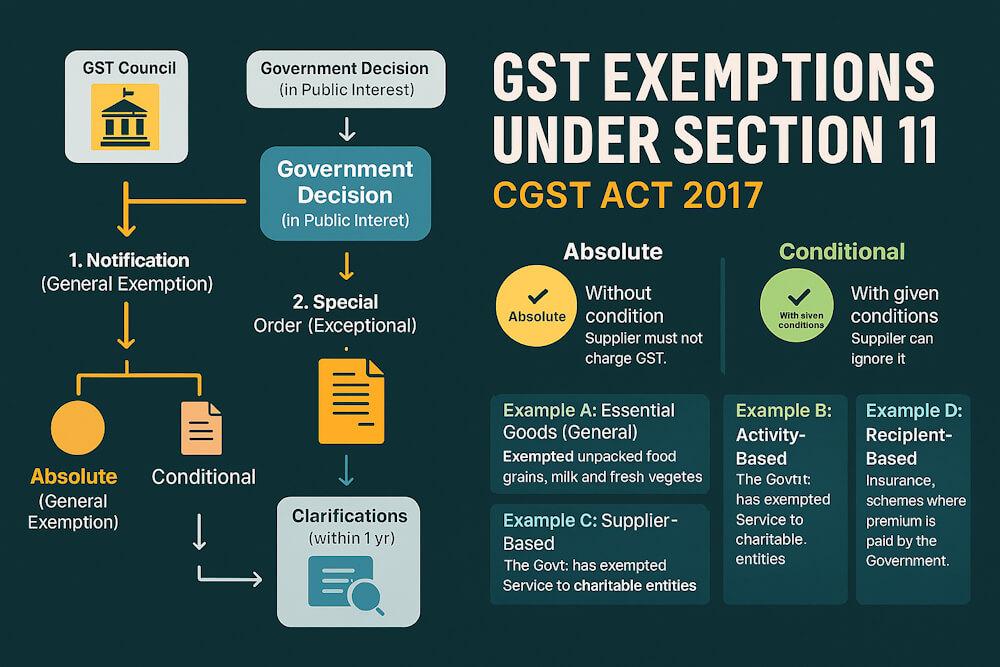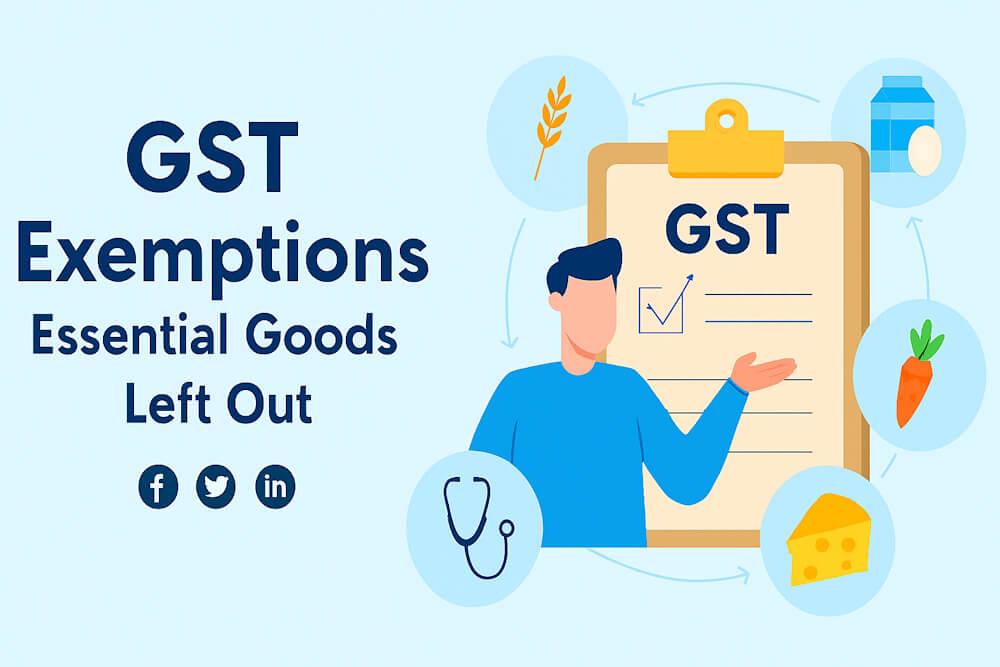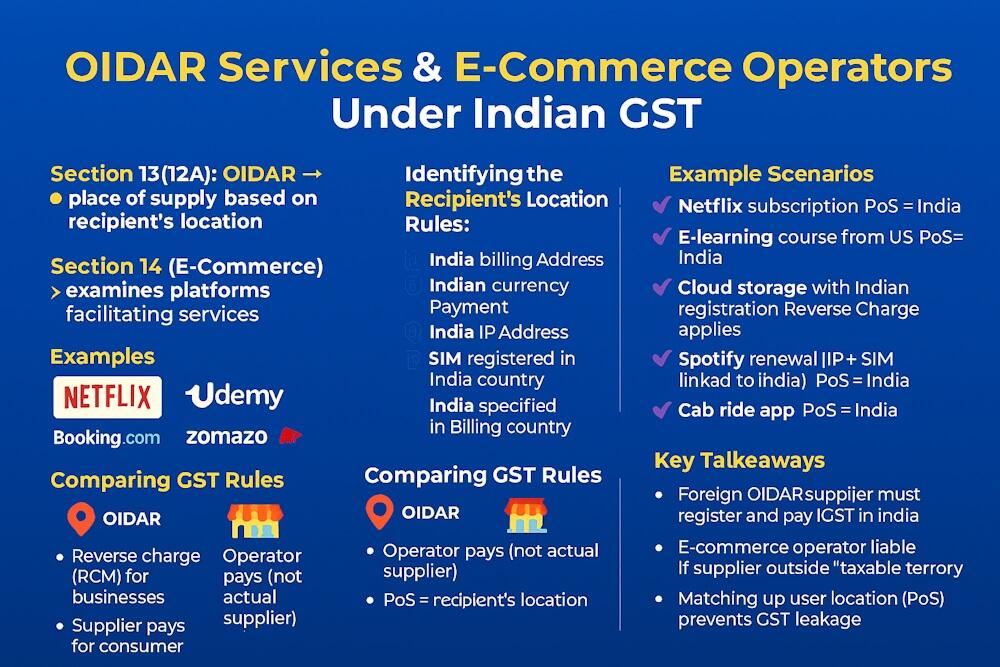1. Introduction
Real estate has always been one of the most dynamic and tax-sensitive sectors in India. From property construction to sale, from land development to renting — almost every step attracts some form of tax.
When the Goods and Services Tax (GST) was introduced in July 2017, it aimed to simplify this complex system. Earlier, multiple taxes like VAT, Service Tax, and Excise Duty applied to real estate transactions. Under GST, these were merged to create a uniform taxation framework.
But even with GST in place, the real estate sector had its own challenges — multiple parties, varying project stages, and confusion over applicable tax rates.
To bring clarity, the GST Council and the CBIC (Central Board of Indirect Taxes and Customs) issued detailed notifications and rate revisions — especially through Notification No. 3/2019 (Central Tax Rate) and subsequent updates.
This blog will walk you through GST applicability, rates, conditions, and examples for the real estate and construction sector in India.
2. Applicability of GST in Real Estate
GST doesn’t apply to all kinds of real estate transactions. It applies only to certain types of activities.
Let’s understand this with three basic categories:
| Transaction Type | GST Applicability |
| Sale of land | ❌ Not taxable (outside GST scope) |
| Sale of completed building (after Occupancy Certificate) | ❌ Not taxable |
| Sale of under-construction property | ✅ Taxable under GST |
| Works contract services (construction activity) | ✅ Taxable under GST |
| Renting commercial property | ✅ Taxable |
| Renting residential property (for business use) | ✅ Taxable |
| Renting residential property (for personal residence) | ❌ Exempt |
In simple words — if you’re buying a ready-to-move-in property, no GST applies. But if you’re buying an under-construction flat, you’ll pay GST.
3. GST on Under-Construction Property
Before 2019, the GST rate for under-construction flats was 12% with input tax credit (ITC). However, to boost home-buying and simplify taxation, the government revised the rates through the GST Council’s 33rd meeting (March 2019).
Here’s how the rates changed:
| Category | Earlier Rate (with ITC) | New Rate (from 1 April 2019) |
| Affordable housing | 8% | 1% (without ITC) |
| Other housing projects | 12% | 5% (without ITC) |
So now, under the new structure:
- Affordable housing projects attract 1% GST,
- Other residential projects attract 5% GST, and both without input tax credit.
4. What Is Affordable Housing under GST?
The government has clearly defined “affordable housing” for GST purposes. A property is considered affordable if it meets the following conditions:
For Metro cities (Delhi, Mumbai, Chennai, Kolkata, Bengaluru, Hyderabad):
- Carpet area up to 60 sq. meters, and
- Value up to ₹45 lakh.
For Non-metro cities:
- Carpet area up to 90 sq. meters, and
- Value up to ₹45 lakh.
If both these conditions are met, GST @ 1% (without ITC) applies.
5. GST on Other Residential Projects (Non-Affordable)
For properties that don’t qualify as affordable, GST is charged at 5% (without ITC).
Example: A developer sells an under-construction flat worth ₹80 lakh in Pune. GST @ 5% = ₹4,00,000. So, the total cost = ₹84,00,000.
Earlier, developers could claim input tax credit, which helped offset some tax costs. But under the new scheme (post-April 2019), ITC is no longer available — keeping the system simple but slightly increasing costs for builders.
6. GST on Commercial Property
Commercial properties (like offices, shops, and godowns) attract different GST treatment.
| Type of Supply | GST Rate | ITC |
| Sale of under-construction commercial units | 12% | ✅ Available |
| Renting of commercial property | 18% | ✅ Available |
| Sale after occupancy certificate | ❌ No GST | ❌ No ITC |
Example: A developer sells a commercial office space (under construction) for ₹1 crore. GST @12% = ₹12 lakh. If used for business, the buyer can claim ITC on this ₹12 lakh.
7. GST on Renting of Property
Renting is another key area under real estate where GST applies differently for residential and commercial purposes.
| Type of Rent | GST Applicability | Rate |
| Residential property rented for personal use | Exempt | 0% |
| Residential property rented for business use (RCM) | Taxable | 18% |
| Commercial property (offices, shops) | Taxable | 18% |
Note: If a registered person rents a residential property for business purposes, GST is payable under Reverse Charge Mechanism (RCM) by the tenant (Notification No. 05/2022).
8. GST on Works Contract and Development Rights
Under GST, works contract is treated as a service, not as a sale of goods.
Works Contract Services:
- Applicable when a contractor constructs a building, complex, or structure for another person.
- GST @ 18% applies on total contract value.
- Input tax credit (ITC) is allowed for contractors.
Transfer of Development Rights (TDR) & Floor Space Index (FSI):
- GST is payable by the developer under Reverse Charge Mechanism (RCM).
- If residential units are sold before completion, RCM applies.
- If sold after obtaining occupancy certificate, no GST applies.
This ensures fair taxation between developers and landowners.
9. Input Tax Credit (ITC) Restrictions
Post April 2019, new projects under the reduced GST rates (1% and 5%) cannot claim input tax credit.
However:
- Old projects (opted for before 31 March 2019) can still continue under the old system (8% or 12%) with ITC.
- Builders need to maintain proper records for project-wise bifurcation of credit used.
The government introduced a formula-based method to calculate ITC reversal for ongoing projects (as per Rule 42 and 43 of CGST Rules).
10. GST on Real Estate – Summary Table
| Category | GST Rate | ITC | Applicable To |
| Affordable Housing | 1% | ❌ No | Residential units ≤ ₹45L |
| Other Housing Projects | 5% | ❌ No | Non-affordable residential |
| Commercial Property (Under Construction) | 12% | ✅ Yes | Offices, shops |
| Renting – Commercial | 18% | ✅ Yes | Office, warehouse lease |
| Renting – Residential (personal use) | 0% | ❌ No | Individual tenants |
| Works Contract | 18% | ✅ Yes | Builders, contractors |
| Transfer of Development Rights (TDR) | RCM – 18% | ✅ For Developer | Landowner–Developer deals |
11. GST Exemptions in Real Estate
The following are not subject to GST:
- Sale of land
- Sale of completed buildings (post-Occupancy Certificate)
- Long-term lease of land for 30+ years (in some government projects)
- Pure labor contracts under PMAY or government housing schemes
These exemptions are provided to keep affordable housing accessible and encourage development.
12. How Developers Adjust GST Costs
Even though ITC is not allowed for new projects, developers usually absorb part of the tax in pricing to remain competitive. Many adjust the 1% or 5% rate in their overall costing.
This has improved transparency — buyers now know the final price upfront without hidden tax components.
13. Impact on Home Buyers
Here’s how GST has changed the property-buying experience:
- Simplified pricing (no multiple taxes like VAT or service tax).
- Easier to compare projects across states due to uniform rates.
- No tax on ready-to-move flats.
- Lower GST rate (1% or 5%) has encouraged more people to buy homes.
However, since ITC is not allowed, the construction cost for builders slightly increases, which may reflect in final prices.
14. Common Misunderstandings
- ❌ GST is not applicable on ready-to-move flats.
- ✅ Only under-construction properties attract GST.
- ❌ You don’t pay GST on land value.
- ✅ Developers must deduct land cost (usually one-third of total value) when calculating GST.
For example, if a flat costs ₹60 lakh (including land value ₹20 lakh): GST is applied only on ₹40 lakh (construction value).
15. Key Notifications for Real Estate GST
Here are some important circulars and notifications to refer to:
- Notification No. 3/2019 – Central Tax (Rate) – New rate structure (1% & 5%)
- Notification No. 4/2019 – Central Tax (Rate) – TDR & FSI clarifications
- Circular No. 354/32/2019-TRU – ITC transition and ongoing projects
- Notification No. 05/2022 – RCM on residential rent for business use
These form the legal base for GST compliance in the real estate sector.
16. Final Thoughts
The GST regime in real estate has brought much-needed clarity, simplicity, and transparency. While the removal of ITC added some cost burden for developers, the reduction in rates (1% & 5%) made housing more affordable for buyers.
For homebuyers — if you’re buying an under-construction property, GST applies at 1% or 5%. If it’s ready-to-move, no GST applies.
For builders and contractors — understanding rate applicability, TDR rules, and ITC restrictions is crucial for proper compliance.
Overall, GST has streamlined the sector and made taxation more predictable — a win-win for both developers and buyers.





